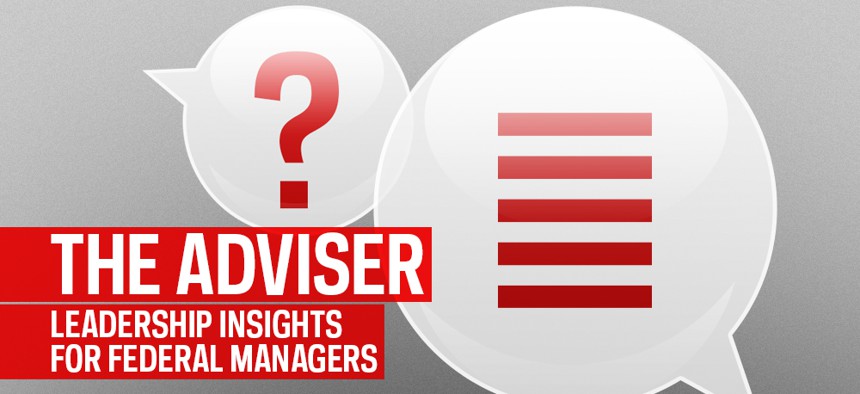
Bonuses in government are in the news, again. The House recently voted to eliminate performance bonuses at the Veterans Affairs Department in response to the scandal regarding patient wait lists that ultimately led to the resignation of Secretary Eric Shinseki. Two reports—one by the VA's inspector general and another by the VA secretary—suggest that employees may have manipulated wait times in order to meet employee performance goals needed for bonuses.
While some have pointed to poor leadership and a corrupt culture as explanations for this behavior, I would like to explore another potential cause: the role of performance bonuses in government. Bonuses are common enough in for-profit businesses to suggest that they play an important role in providing useful incentives for shaping worker behavior. But are bonuses for achieving performance targets an appropriate way to provide incentives in government?
To explore this issue, let’s turn to economics. A tenet of economics is that people will strive to achieve performance targets in response to incentives, which is the foundation of the principal-agent theory. In the theory’s simplest form, a “principal” (in this case, Congress or senior leadership) sets an objective, offers a reward for achieving the objective, measures whether the objective is met, and provides a payment if ”agents” achieve the objective.
This common-sense idea depends on a number of critical assumptions. Let’s work through these assumptions to see if they hold in a government context. The simplest version of the theory assumes that:
- The principal specifies objectives that can be achieved.
- The principal measures efforts or outcomes accurately and precisely.
- The principal pays out the bonus if earned.
- The agents choose to put in effort only for the purpose of achieving the objectives.
If these assumptions hold, then both the principal and the agent are better off: the principal gets the desired performance outcome by encouraging the agent to work harder than might otherwise happen if only a salary is paid, and the agent makes more money than might otherwise be the case. On first blush, using bonuses seems like a good idea.
Yet in many instances, especially in government, these assumptions do not hold.
First, the political process makes it difficult to specify an appropriate set of objectives. Not only must Congress figure out what objectives in fact are achievable, it must specify all the objectives to be achieved. Achievable objectives require either detailed knowledge of the job and person’s ability, or a way to experiment and actively adjust the incentive as they learn what is achievable. Congressional leaders, even with best intentions and the best staff, rarely can access enough knowledge to figure out appropriate and achievable objectives.
More importantly, most jobs have many objectives, and specifying all of them (think about all the specific objectives needed for a business to make a profit) waters down the impact of any single incentive so that it becomes meaningless. Instead, if incentives are provided for some objectives and not others then the former will be achieved whereas the latter likely will languish for lack of a reward.
Or as anyone who has worked in sales knows, workers quickly learn how to game the incentive system to their advantage, which requires the principal to keep changing the incentive structure in futile attempts to get the desired behavior. With the time it takes to respond to such needs, Congress can never keep up with such gaming.
Second, to pay out bonuses, objectives must be measured. All too often some objectives are easy to measure while others are difficult. For instance, measuring profit or stock price is relatively easy but measuring ethical behavior is difficult.
Incentives encourage agents to focus on what is easily measured and put less effort into the objectives that are more difficult to measure. Indeed, large bonuses lead to accomplishing easy-to-measure objectives whereas difficult-to-measure objectives will fall by the wayside as workers shift their attention from one (like behaving ethically) to the other (like earning the bonus).
Measuring the objectives for government jobs, especially for senior leaders, is inherently difficult. Unlike businesses, aggregate measures like profit and stock price are not available in the government. Without simple aggregate measures, objectives promulgate, increasing both the number of measures and their variance.
Third, can the government promise bonuses and then follow through? Sometimes yes, and as we have learned through the experience of shutdowns and congressional votes, sometimes no. In the private sector, employees can take contracts to the courts to resolve disputes. Government employees don’t have access to the same means for resolving such disputes. Without expectations of payment, no additional effort will be forthcoming.
Fourth, agents have more choices than working hard to achieve their goals. If they can earn more by gaming the incentive system, then some will. If it is easier to cheat with a low likelihood of getting caught and punished, then some might. If agents come to expect that they have a “right” to a bonus because they receive the bonus all the time and the principal makes it practically impossible to achieve it or takes it away, then jealously can be sparked.
Jealously is among the most dangerous of emotions and is associated with anger, rage and feeling threatened. These emotions can cause agents to take extreme actions, even justify unethical behavior in the name of righteousness, if they believe a right or possession has been taken away or they are being treated unjustly.
Blaming leadership and culture for bad behavior may not be wrong, but it may not tell the whole story. Government is different from business and even from not-for-profit organizations. Borrowing best practices from one domain—like bonuses in business—and grafting them onto another—like bonuses in government—can have problematic and deeply troubling consequences.
Government leaders need to understand these differences and guard against adopting “best practices” from business when doing so can harm lives, reputations and the value that we as citizens rely on from our government. Performance bonuses for government employees are one of those so-called best practices that are bad for government.
Duce a mente
(May you lead by thinking)
NEXT STORY: White House Creates New Honeybee Task Force







